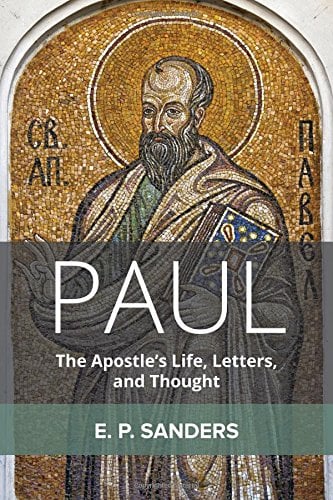Gal. 6.7-9 makes clear Paul thinks there is rewards for good deeds as well as punishment for bad deeds. You reap what you sow.
p. 561– Again works of the Law are not good deeds and vice versa. “With the exception of idolatry and sexual activity, the vice lists are about actions that hurt other people, and the virtue list, governed by the biblical commandment to love one another is entirely about how to act towards others. Ethically Paul is a humanist—as was Jesus (e.g. Matt. 25.31-46).” [It’s a mistake to think that idolatry and various kinds of sexual activity are exceptions on a list of things that can hurt other people. Paul believes both those things are perhaps the things that in some ways can most hurt other people].
I agree with Sanders however that works of the Mosaic Law is one topic and has as its antinomy righteousness by faith, where the opposite of good deeds is bad deeds.
p. 562–See the virtue lists in 2 Cor. 6.6; Gal. 5.22-23; Phil.4.8 [only fruit of the Spirit is the product of the Spirit in the human life. The fruit is not a virtue, but doing deeds on the basis of the fruit is]
pp. 563-64— Paul seems to be dealing with 3 groups— liberal Jewish Christians like himself who do not want to require circumcision of Gentiles, secondly those who do, and thirdly the group that will persecute the Judaizers if they don’t require Gentile circumcision, probably as Sanders suggests these are non-Christian Jews.
[Because Christ’s death and faith in him are adequate for salvation, circumcision and keeping the Mosaic Law is not necessary for it. But when Paul says what matters is new creation, he is speaking eschatologically, and he means there is already a new situation a new covenant with new commandments to live by in the eschatological age].
p. 565—Sanders thinks Gal. 6.16 favors the idea that Paul saw Christians as the new Israel, but in favor of them being a new race is 1 Cor. 10.32.
p. 566— The marks on Paul’s body are due to the flogging etc.in synagogues and the beating with Roman rods. Sanders rejects the idea that the miraculous appearance of stigmata beginning with Francis of Assisi and later others has anything to do with this. “The signs of his suffering from being flogged and beaten meant he shared the sufferings of Christ, not that his wounds were precisely like those of Jesus.”
p. 568—being righteoused, receiving the Spirit, becoming children of God are not sequential they are all terms for becoming Christian. I agree with Sanders that the dikaio language refers to a change or transformation in and of the believer. It does not simply refer to forensic righteousness. It has to do with being one person with Christ transferred from a bad to a good state.
p. 569— the first table of the Mosaic Law has to do with piety, the second with justice. Righteous is the standard term in Judaism for a good person who obeys the commandments. Paul uses the language differently to refer to people who have converted to Christ. He does use the dikaio root in Phil. 4.8 to refer to whatever is just or right in the normal moral sense. cf. 2 Cor. 9.10— harvest of righteousness, which means doing right. So occasionally he uses the language as usually used in Greek-speaking Judaism to refer to ethically correct behavior.
pp. 571-72— Paul’s use of the phrase good works or works that are implied to be good are numerous and often commended, such as doing the work of the Lord, but Sanders rightly complains that translations often cover this up, lest Paul be accused of works righteousness. Cf. Rom. 2.6,7,15;1 Cor. 3.14,9.1, 15.58, 16.10; 2 Cor. 9.8, 11.15; Gal. 6.4; Phil. 1.6,22, 2.30; 1 Thess. 1.3—in 1,2,4,9 of these listed Paul states people are appropriately rewarded or punished according to their works. Most painful to some NT scholars is no. 3 and 10 above a work of the Law is good, and one can boast in one’s own works.













